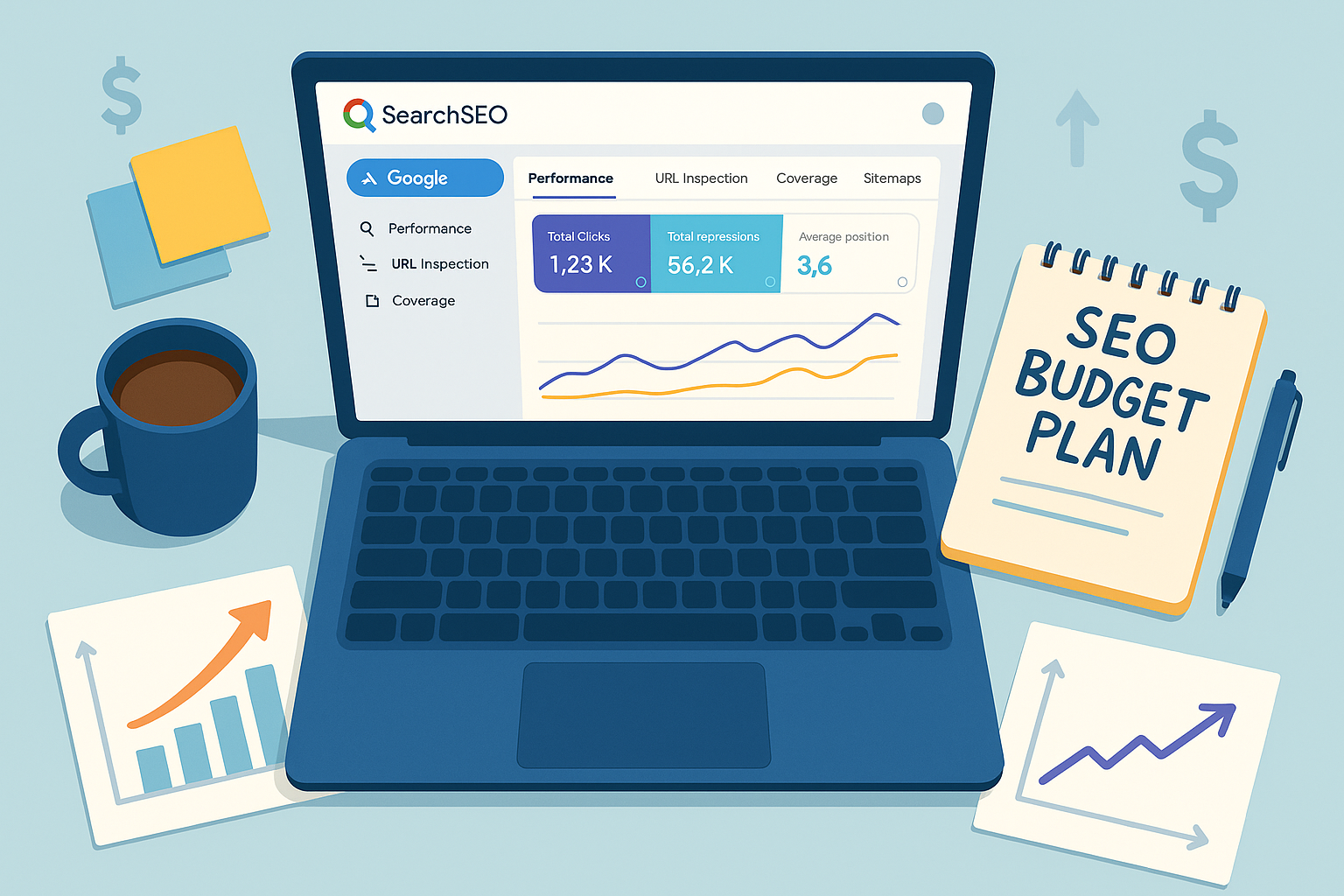Search engine optimization (SEO) is one of the highest-ROI channels you can invest in, but only if you know where your money is going. Too often, businesses spend on tools or agencies without a clear plan and then wonder why rankings do not improve. That is where a well-structured SEO budget makes the difference.
Think of it as a roadmap for your organic growth. Instead of overspending in the wrong areas, you will know exactly what to prioritize, how to allocate funds, and which affordable tactics can give you an edge. One of the most overlooked but powerful of these tactics is click-through rate optimization.
In this guide, you will learn how to build an SEO budget that actually moves the needle. Whether you are a solo founder or leading a marketing team, this framework will help you spend smarter, not just more.

Why every business needs an SEO budget (even small ones)
An SEO budget is not just about hiring an agency. It is about intentionally investing in the levers that grow your organic visibility.
Here is why you need one:
- Organic visibility means long-term ROI. Paid ads stop when your spend stops. SEO compounds.
- The cost of inaction is high. If you are not optimizing, competitors are.
- The myth of free SEO. Even DIY SEO requires time, tools, and effort, none of which are free.
If you want predictable growth, you need to set your own SEO budget instead of leaving it to chance.
Core components of a smart SEO budget plan
A solid SEO budget plan balances technical health, content optimization, authority building, and user signals.
- Technical SEO – Site audits, fixing broken links, improving crawlability.
- Content strategy – Invest in keyword targeting, blog updates, and content refreshes.
- Backlinks and outreach – Building trust with search engines through authority sites.
- CTR boosting – Often overlooked but one of the most cost-effective tactics for moving the needle.
Optional but powerful: CTR optimization tools
Click-through rate (CTR) is a growing ranking factor. If people do not click your listing, Google assumes it is less relevant.
This is where SearchSEO comes in. Unlike shady bots, SearchSEO sends real, residential-IP traffic that mimics genuine user behavior. It is seo budget friendly, scalable, and should be a line item in every SEO budget.
SEO budget allocation: How much should you spend?
So how do you calculate SEO budget? A good rule of thumb is to align spend with your company size and goals.
- Small businesses or startups: $500 to $2,000 per month
- Mid-size companies: $2,000 to $10,000 per month
- Enterprise: $10,000 or more per month
Other factors to consider:
- In-house vs. agency vs. hybrid. Agencies can charge $2,000 to $10,000 per month, while budget SEO services or freelancers may be more cost-effective.
- ROI-based allocation. Spend more on what is already moving the needle.
Where most budgets go wrong
- Overpaying for low-quality link packages
- Ignoring engagement signals like CTR
- Underestimating how often content needs refreshing
If you are wondering how to secure SEO budget from leadership, show them the missed ROI that comes from underfunding organic search.
What SEO looks like on a budget
Yes, you can do SEO on a budget, even under $1,000 per month. Here is a realistic, seo budget friendly stack:
- DIY tools like Google Analytics 4, Search Console, and Screaming Frog
- Outsourcing content creation with clear briefs
- Running a mini CTR project in SearchSEO for just $29 per month
Budget-friendly SEO wins with high ROI
- Updating old content with fresh stats
- Targeting low-competition, high-intent keywords
- Using CTR boosts for long-tail keywords
Building your SEO budget strategy: 5-step checklist
Here is how to set SEO budget with confidence:
- Audit your current visibility and goals
- Estimate cost per tactic
- Allocate by impact on traffic and conversions
- Set measurable KPIs
- Leave 10 to 15 percent flexible for testing (like SearchSEO traffic boosts)
This simple framework ensures you do not just spend, you invest.
Common SEO budgeting mistakes to avoid
- Thinking short term only
- Expecting results in 30 days
- Spending everything on tools instead of strategy
- Ignoring CTR optimization as a ranking factor
- Risking penalties with grey hat SEO tactics instead of proven strategies
Including CTR-boosting traffic in your SEO budget (the overlooked opportunity)
CTR is one of the most underrated signals in SEO. Higher CTR tells Google your content is relevant, which boosts your chances to climb.
Most businesses ignore it when they budget for SEO, but that is where you can gain an edge.
With SearchSEO, you get:
- Real traffic (not bots) from residential IPs
- Flexible plans starting at just $29 per month
- Scalable traffic campaigns that grow with you
It is the definition of budget SEO services that deliver results.
Final thoughts: Spend smarter, not just more
The smartest SEO budgets are not the biggest. They are intentional.
Invest in what moves the needle: technical fixes, content, authority, and CTR signals. Cut what does not. Always reinvest in what proves ROI.
Ready to make your SEO budget work harder?
Do not just rank. Stand out. Add SearchSEO to your stack and see what real, click-driven engagement can do.


.svg)

.svg)
%201.png)








.svg)